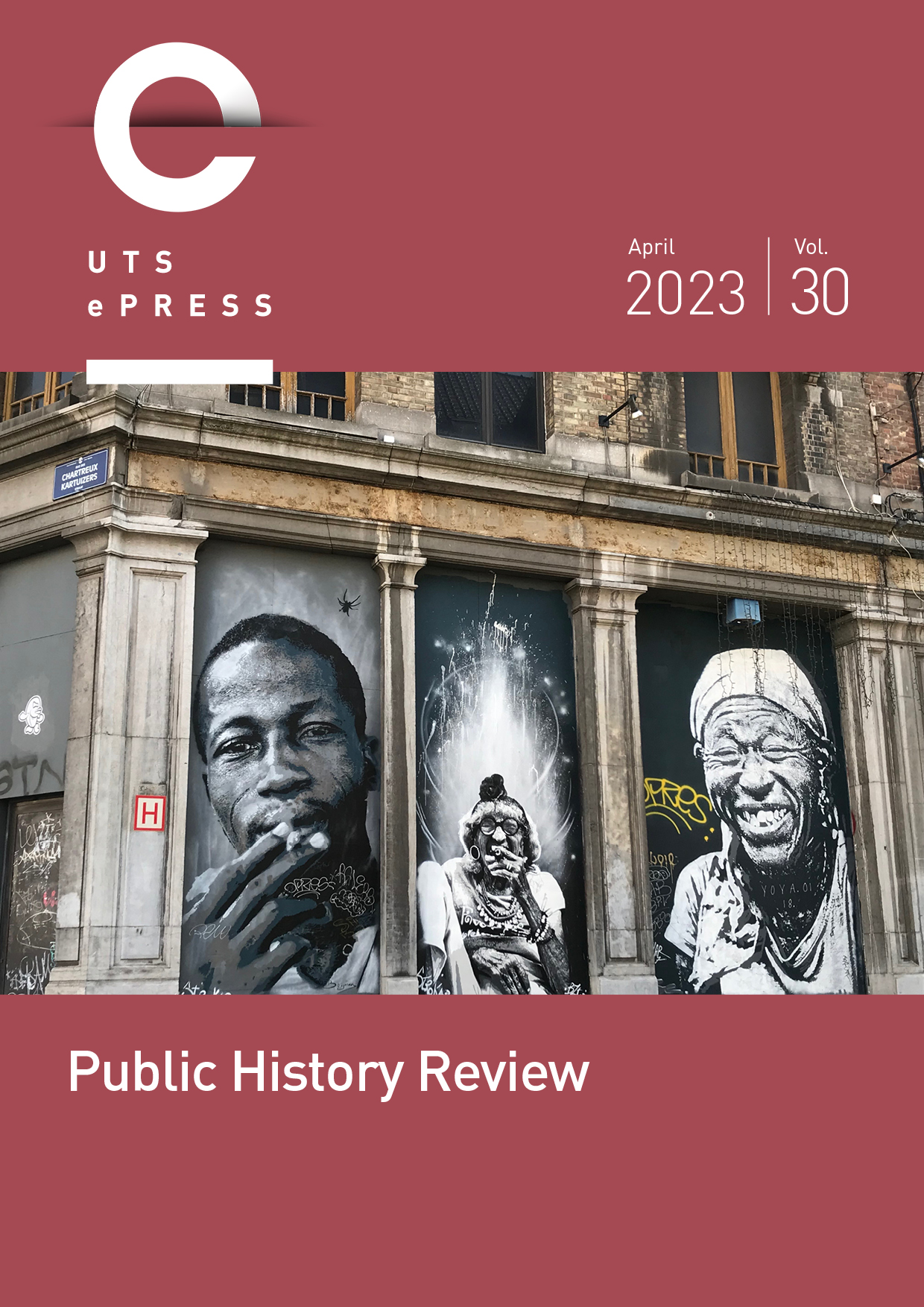Public History, National Museums and Transnational History
Main Article Content
Abstract
The concept of a ‘national museum’ is fundamentally at odds with the theory and practice of public history, with public historians’ understanding that historical experience often does not obey borders, that the nation is not always the center of human experience and culture. The argument of this essay is that transnational history—history that crosses borders, that challenges the privileging of the nation state—constitutes an opportunity for national museums to go beyond national identity and the confines of geopolitical borders. Human experience is far more complicated than can be captured in the history of a single nation, and national museums are obligated to transcend such a narrative and engage in the contested, transnational nature of history and culture. Museums are well positioned to do this because they deal not only in ideas but in objects, the material culture of times and places that did not so easily sort out into ‘nation’ and ‘other.’ Museums can make the theoretical real, illuminating how national identity has been constructed from the parts of our many cultures, ideas, and institutions, recentering the narrative and recovering the stories obscured by the ascendancy of the national narrative.
Article Details
Issue
Section
Authors who submit articles to this journal from 31st March 2014 for publication, agree to the following terms:
a) Authors retain copyright and grant the journal right of first publication with the work simultaneously licensed under a Creative Commons Attribution License that allows others to share and adapt the work with an acknowledgement of the work's authorship and initial publication in this journal.
b) Authors are able to enter into separate, additional contractual arrangements for the non-exclusive distribution of the journal's published version of the work (e.g., post it to an institutional repository or publish it in a book), with an acknowledgement of its initial publication in this journal.
c) Authors are permitted and encouraged to post their work online (e.g., in institutional repositories or on their website) prior to and during the submission process, as it can lead to productive exchanges, as well as earlier and greater citation of published work (See The Open Access Citation Advantage Service). Where authors include such a work in an institutional repository or on their website (ie. a copy of a work which has been published in a UTS ePRESS journal, or a pre-print or post-print version of that work), we request that they include a statement that acknowledges the UTS ePRESS publication including the name of the journal, the volume number and a web-link to the journal item.
d) Authors should be aware that the Creative Commons Attribution (CC-BY) License permits readers to share (copy and redistribute the work in any medium or format) and adapt (remix, transform, and build upon the work) for any purpose, even commercially, provided they also give appropriate credit to the work, provide a link to the license, and indicate if changes were made. They may do these things in any reasonable manner, but not in any way that suggests you or your publisher endorses their use.
For Vol 20 (2013) and before, the following copyright applied:
Authors submitting articles to UTSePress publications agree to assign a limited license to UTSePress if and when the manuscript is accepted for publication. This license allows UTSePress to publish a manuscript in a given issue. Articles published by UTSePress are protected by copyright which is retained by the authors who assert their moral rights. Authors control translation and reproduction rights to their works published by UTSePress. UTSePress publications are copyright and all rights are reserved worldwide. Downloads of specific portions of them are permitted for personal use only, not for commercial use or resale. Permissions to reprint or use any materials should be directed to UTSePress.
